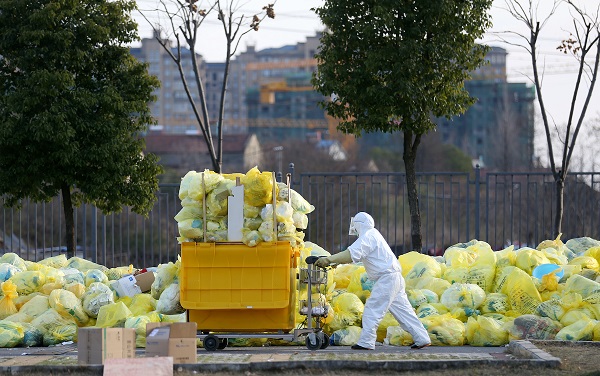The World Health Organization, WHO has said that tens of thousands of tonnes of extra medical waste from the response to the COVID-19 pandemic are putting tremendous strain on healthcare waste management systems around the globe.
The agency’s Global analysis of healthcare waste in the context of COVID-19, status, impacts and recommendations, had it that plastic trash threatens human and environmental health and points to a dire need to improve waste management practices.
Speaking to journalists in Geneva, the agency’s chief, Tedros Adhanom Ghebreyesus, said the agency’s analysis “is a reminder that although the pandemic is the most severe health crisis in a century, it is connected with many other challenges that countries face.”
Read also: Study finds aquaculture could counter drivers of climate change
The agency said that the sight of discarded masks, littering pavements, beaches and roadsides, had become a universal symbol of the ongoing pandemic worldwide.
The agency’s analysis further points out that over 140 million test kits, with a potential to generate 2,600 tonnes of non-infectious waste (mainly plastic) – and 731,000 litres of chemical waste (equivalent to one-third of an Olympic-size swimming pool – have been shipped.
This is even as over 8 billion doses of vaccine have been administered globally producing 144,000 tonnes of additional waste in the form of syringes, needles, and safety boxes.
Story was adapted from UN News.
